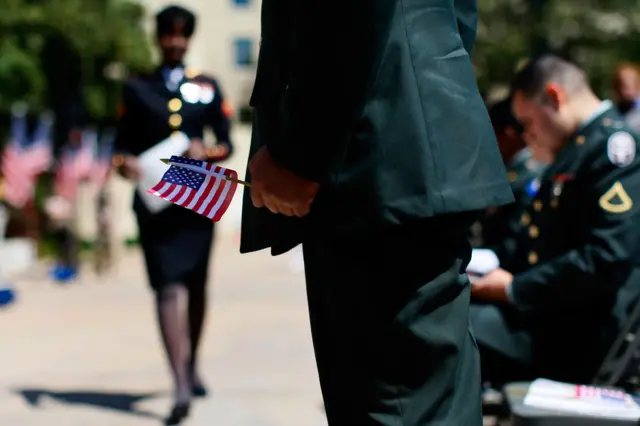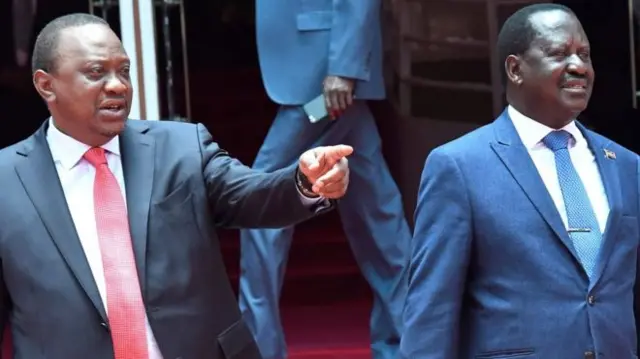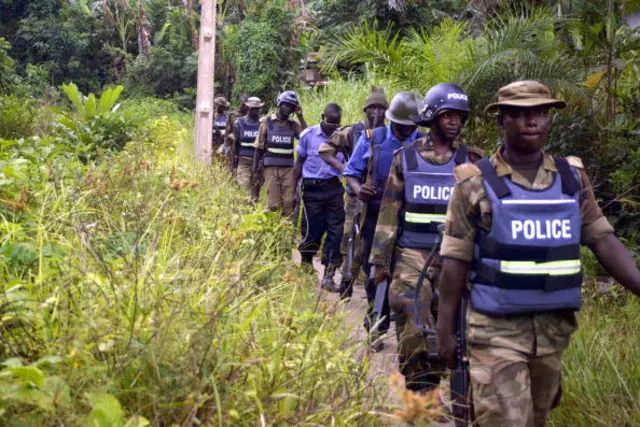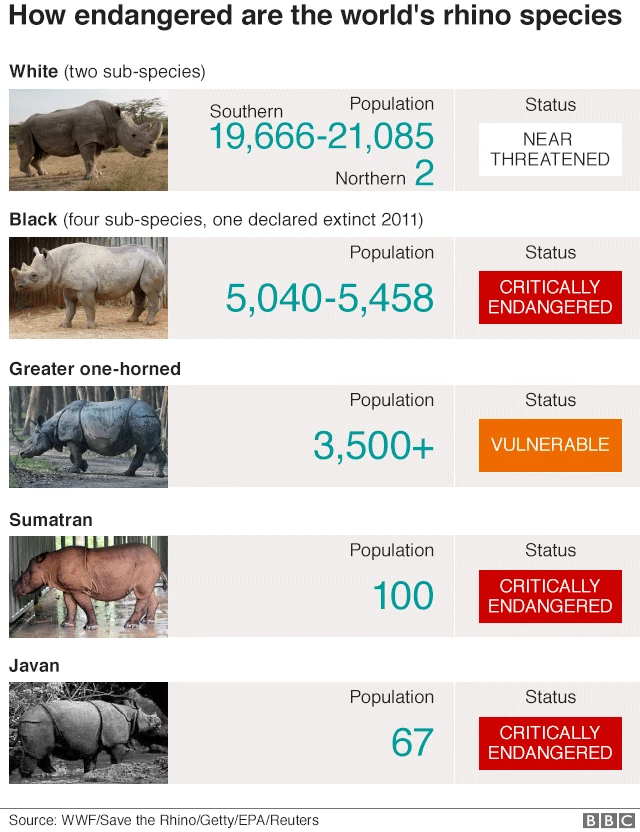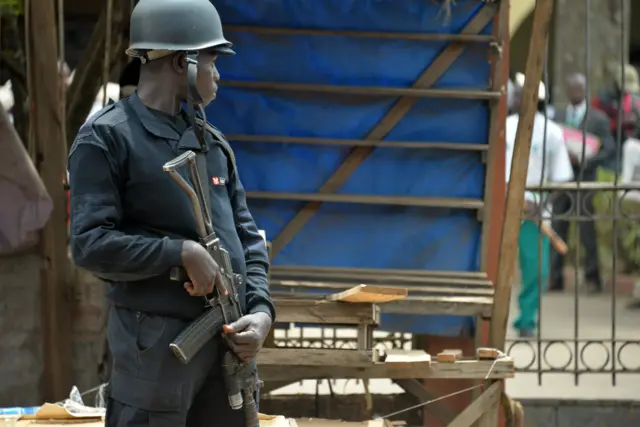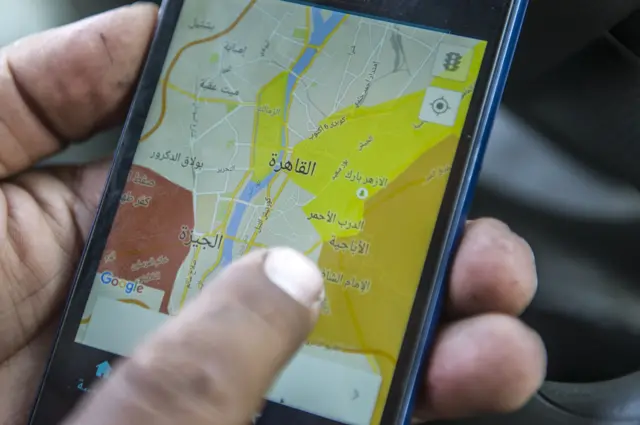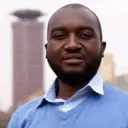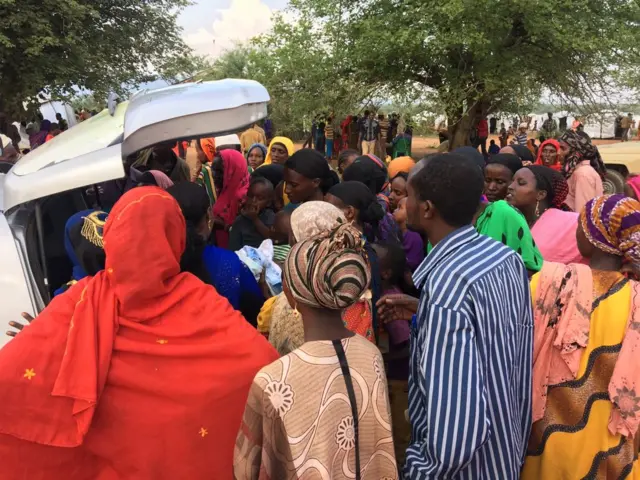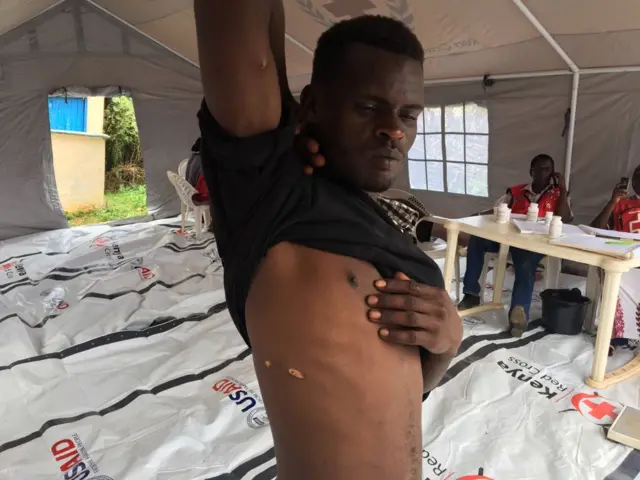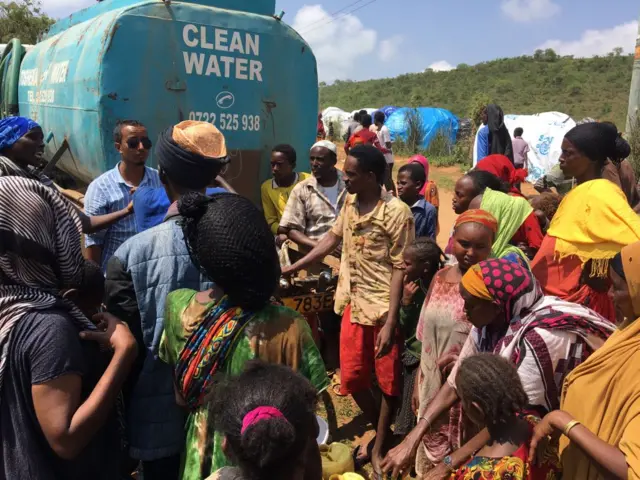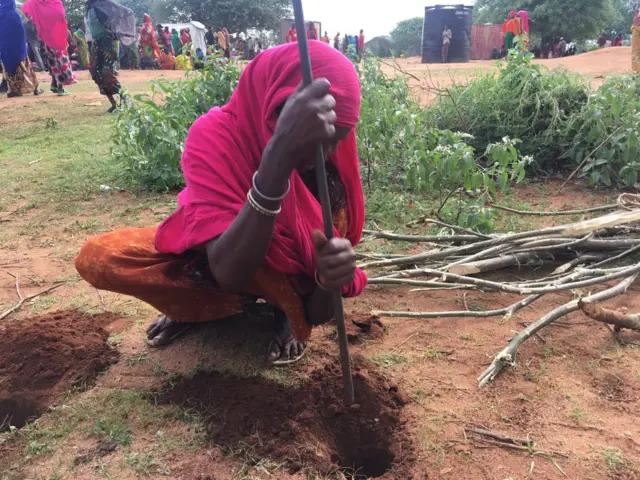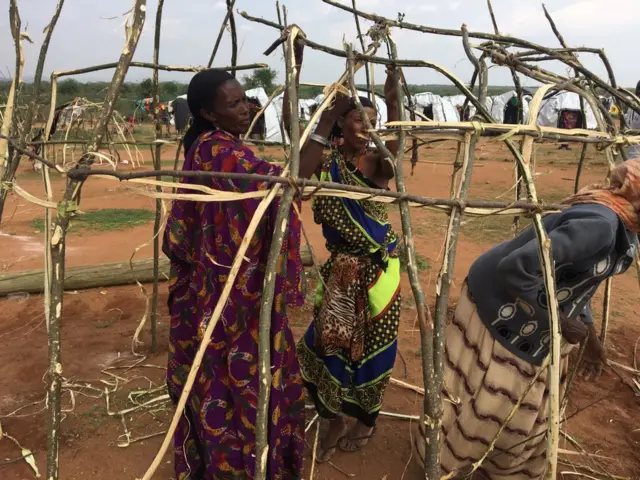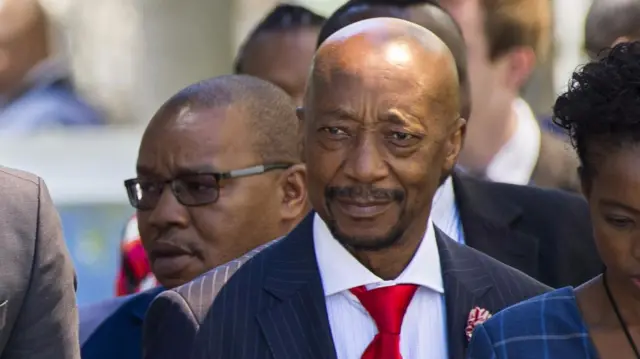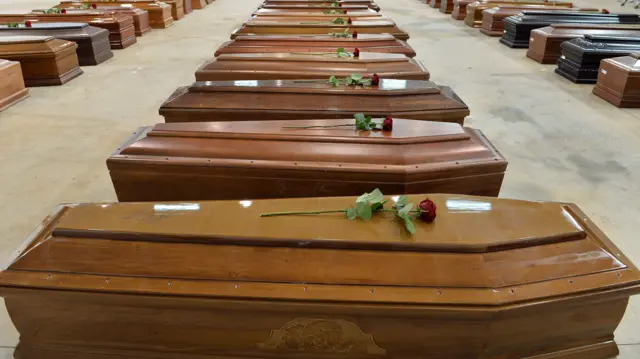Scroll down for Tuesday's storiespublished at 17:38 GMT 20 March 2018
We’ll be back tomorrow
That's all from BBC Africa Live for today. Keep up-to-date with what's happening across the continent by listening to the Africa Today podcast or check the BBC News website.
A reminder of today's wise words:
Quote MessageA calf doesn't laugh at a hornless cow.
Sent by Olichey Don Gabriel, Bolgatanga, Ghana.
Click here and scroll to the bottom to send us your African proverbs.
And, on the day the world said goodbye to the last ever male northern white rhino, we leave you with this picture of Sudan the rhino with one of his dedicated carers.
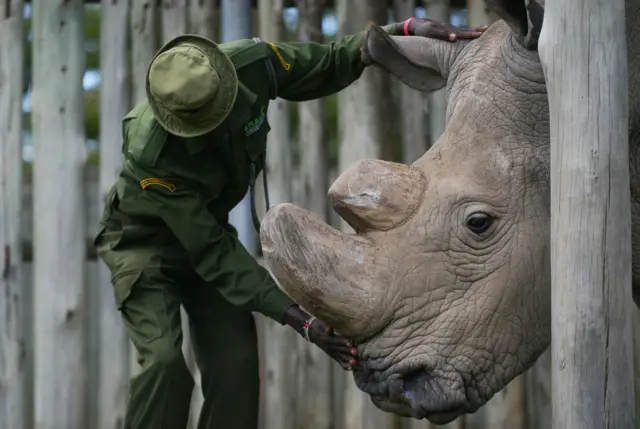 Image source, Getty Images
Image source, Getty Images
